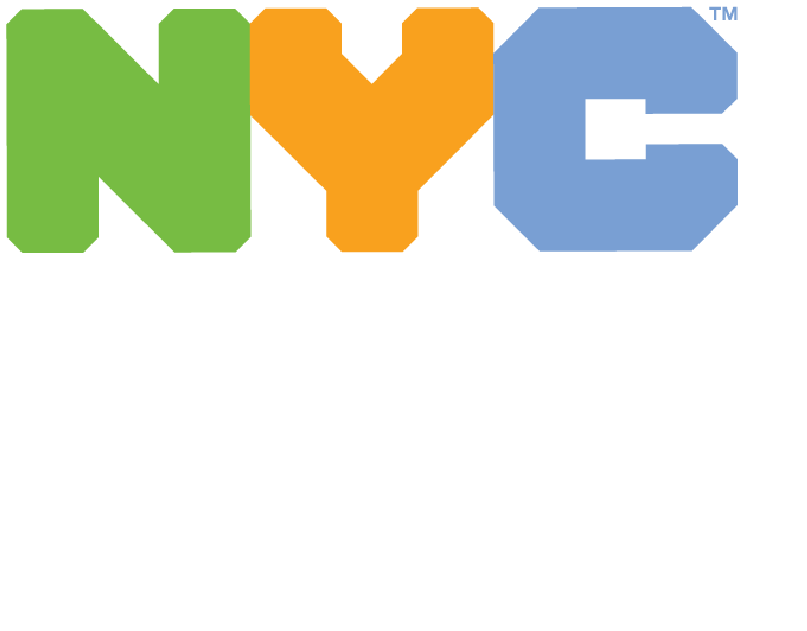Purpose
Help students to develop broad career awareness and sector-specific knowledge, skills, and abilities; validate potential career interests before making heavy investments; prepare in applied settings with more context that is relevant for the future; and launch their careers with a valuable postsecondary credential.
Definition
- A 4-year, 4-8 credit course sequence of career-connected instruction, starting with the 9th grade Foundations in Career-Connected Learning Course for non-MYA schools, career exploration designed to provide a foundational understanding of each career pathway / occupational title and general introduction to learning about careers.
- The course sequence for each school will be aligned to a career pathway / occupational title and adhere to NYCPS approved standards (provided by the Office of Student Pathways)
Minimum experiences FRNYC schools must provide to FRNYC students
Each FRNYC course of study starts with the Foundations career exploration course and follows a sequence of four career-connected 1 credit (54 hour) courses that are intended to be taught sequentially throughout FRNYC students' high school experience. Together, these courses are intended to engage and prepare students for in-demand, living-wage careers and continued postsecondary education and training. By the end of the course sequence, students will prepare to earn credentials of value aligned to their pathway / occupational title.
Schools offer broad career exploration coursework to 9th grade students in the Foundations course to pique their interest in FRNYC prior to enrolling them in pathway-specific coursework. Schools with existing career exploration coursework should consult with the NYCPS team to ensure it meets FRNYC standards. Schools without existing career exploration coursework will be asked to pilot a one-credit centrally designed curriculum called "Career Foundations."
You can view the full Standards and Course Sequences.
- Adaptations to FRNYC course sequences may be approved based on alternative school models (e.g., Transfer, District 75, International, 9-14) in consultation with the central FRNYC team
- Healthcare course sequences have a higher credit load and depending on the school's program model, students may need to begin coursework in 9th grade
-
-
Grade i
-
Experience
-
-
- Grade 9
-
-
For FRNYC schools:
- Broad career exploration coursework. Schools without existing career exploration coursework can opt into implementing a pilot one-credit centrally designed curriculum called “Career Foundations”
- At least one introductory pathway-aligned course to build interest and practical job skills (if applicable)
-
For CRMYA & FRNYC schools only:
- CRMYA Career Exploration
-
For FRNYC schools:
-
- Grade 10
-
-
At least one introductory pathway-aligned course to build interest and practical job skills. Examples include:
- Tech: Introduction to Computer Science
- Business: Introduction to Business & Marketing
- Education: Introduction to Teaching
- Healthcare: Foundations of Health Core Part 1
-
For CRMYA & FRNYC schools only:
- CRMYA Career Development course
- CRMYA Pathway Matching course (selected students)
-
At least one introductory pathway-aligned course to build interest and practical job skills. Examples include:
-
- Grade 11
-
- At least one upper-level pathway-aligned course
-
- Grade 12
-
- At least one upper-level pathway-aligned course
Checklist of actions schools need to take
View full FRNYC Planning Checklist.
Detailed implementation guidance
To prepare to teach CCI courses, schools must complete the following milestones:
-
-
Key Milestones
-
Action Items and Guidance
-
-
- Hire or assign teachers to teach courses in SY23-24
-
- Schools have discretion to hire new teachers, leverage existing teaching staff, or a combination of both
- Consult the FRNYC pathway teacher licensing resource as you staff your program
- Schools in first-year implementation will be required to offer CCI courses to 9th and 10th grade students, while schools in full implementation will be required to offer the full CCI course sequence to 9th-12th grade students
- Make certain that your school has assigned enough teachers to teach CCI courses to your school’s FRNYC sections, while aligning to UFT teaching program regulations
- Refer to the budget section for guidance on how to use your SAM allocation to fund teacher hiring
-
- Program students into CCI courses (see Scheduling Programming section for more details)
-
- Incorporate FRNYC coursework into your school’s master scheduling process before the start of SY23-24
- Starting in September 2023, FRNYC students must be programmed into CCI courses consistent with your school’s implementation model and pathway.
-
- Train teachers to teach SY23-24 courses
-
- Training on CCI course standards and associated curricula overview will be provided during the FRNYC Summer Institute (see the section on Training for more details)
- Sign up for FRNYC Summer Institute 2023
-
- Embed NYCPS-approved Industry Standards and FRNYC curricula into school-based PL structures
-
- FRNYC teachers should turn-key knowledge obtained through Summer Institute, school year PL, and through experiential learning with non-FRNYC teachers
- Establish multi-disciplinary projects and efforts to align coursework between FRNYC and non-FRNYC courses
-
- Create support materials and daily lesson plans (if applicable)
-
- Schools should expect further guidance / PL from Central during the summer
-
- Teach courses to students
-
- Teachers to teach courses to students starting Fall 2023
-
- [FOR TEACHERS] Continuously participate in PL for CCI courses
-
- Teachers should continuously participate in PL to co-develop and enhance curricular supports in partnership with the Office of Student Pathways. See required curriculum PL calendar
Additional recommended resources
Please review the NYCPS approved course sequences and standards for your pathway.
Table represents a highly suggested grade-specific distribution of FRNYC courses. That said, FRNYC courses may be taught throughout the high school FRNYC experience provided that they are taught in the intended sequence.

